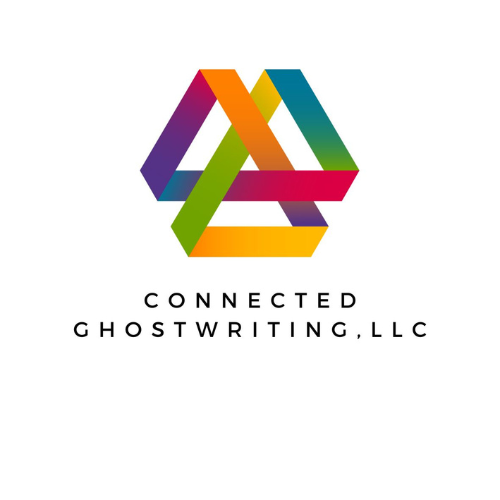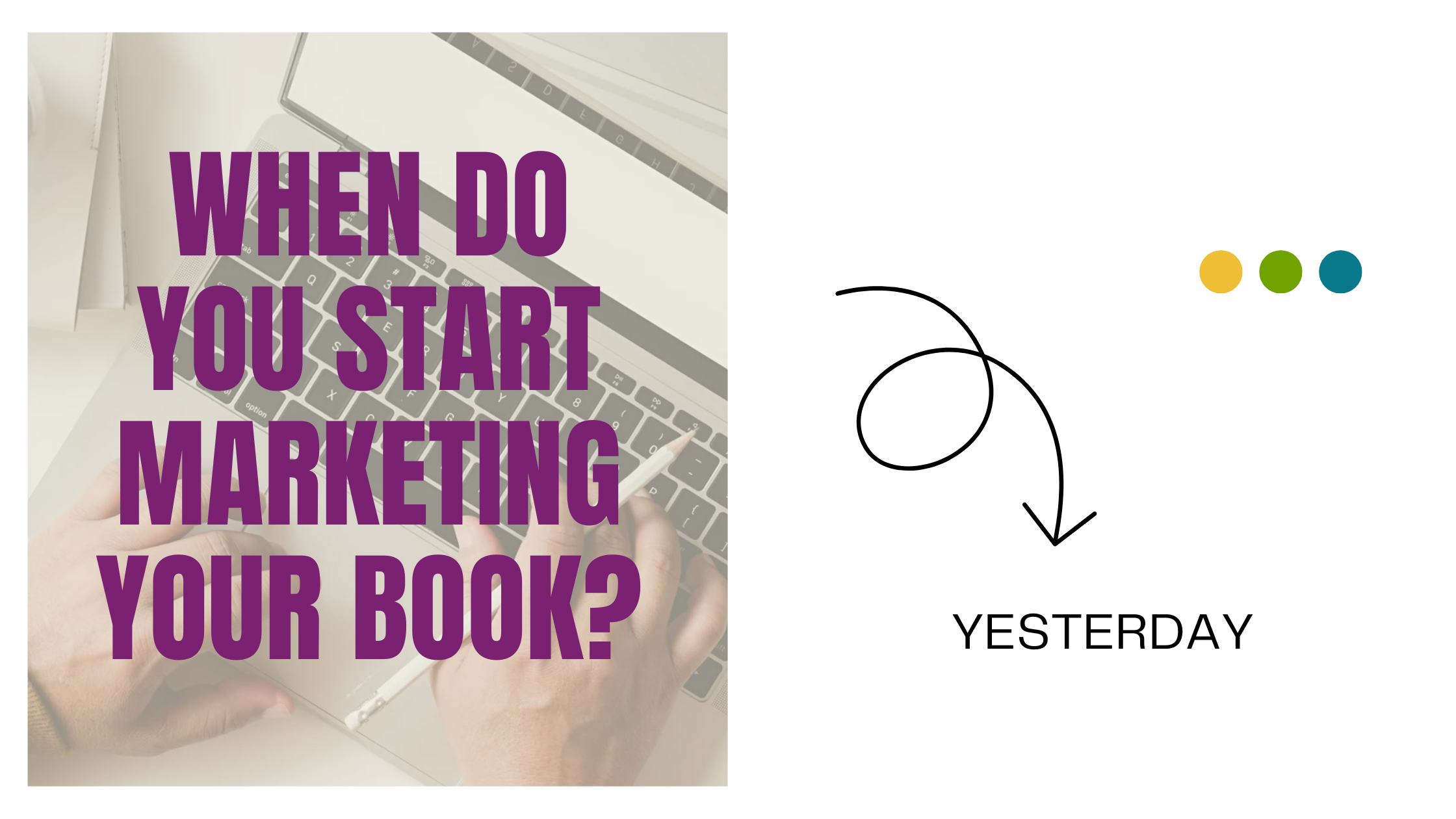One of the most common questions I hear from first-time authors, whether they are self-publishing or aiming for traditional publishing, is: When should I start marketing my book?
The answer? The moment you decide to write it. And yes, I know that answer makes a lot of people uncomfortable. But, I have it on good authority from the publishers I know that talking about your book before reaching out to them increases your chances of your book being accepted.
Why You Should Market Your Book While Writing It
Marketing a book before it’s even finished might seem counterintuitive, especially if you’re still struggling with writer’s block or the editing process. But the reality is that your audience needs time to grow, and building that audience should start early. Published authors who wait until the last minute to market their book often struggle to find potential readers, while those who create buzz along the way find their book launches far more successful.
When I started writing Part-Time Entrepreneur, I was also laying the groundwork for my nonprofit, Journey 2 Success. Even though I wasn’t explicitly marketing the book, I was sharing valuable insights related to its themes through my blog and social media. By the time I secured a publishing contract, I had 6,000 engaged followers across all platforms who were already interested in the topics I was writing about.
Let’s dive into some of the benefits authors experience when they market early.
1. Monetize Your Expertise Before Your Book is Published
Marketing your book early allows you to start generating income from related services that go beyond book sales. Whether you’re offering coaching, consulting, courses, or workshops, positioning yourself as an expert on your book’s subject will attract paying clients before the book is even released.
2. Secure Speaking Gigs and Media Opportunities
A well-marketed book can help you land speaking engagements, interviews on podcasts, and media outlets. These opportunities not only establish credibility but can also lead to paid appearances, expanding your influence and reach.
3. Build a Loyal Audience Ready to Buy
An engaged audience will be more likely to buy your book the moment it’s available. By sharing behind-the-scenes content, your writing process, and insights from your book, you create anticipation and demand before launch day. This makes book promotion a snap once you launch.
4. Attract Traditional Publishing Deals
If you’re considering traditional publishing, having an established audience makes you more attractive to publishers. They look for authors who already have a platform engaging with their particular brand of storytelling. Publishers know that this engagement can drive sales, making a strong marketing strategy a valuable asset.
5. Establish Passive Income Streams
Your book can be the foundation for various revenue streams such as online courses, memberships, and exclusive content. Early marketing helps you understand your audience’s needs, so you can develop offerings that complement your book. Pay attention to what your audience responds to. I was working with an online course creator yesterday. We tracked her social media content and found one post with thousands of views compared to hundreds of views on everything else. Then, we planned a podcast season around that topic, which will spiral into more social content, blog content, etc. By leveraging your data early you can adjust to your audience’s needs.
6. Strengthen Your Personal Brand
Marketing a book isn’t just about selling—it’s about building a personal brand that transcends your business brand. Early marketing helps establish you as an authority in your field, leading to more business opportunities, collaborations, and long-term career growth.
Addressing the Common Fears of Book Marketing

“I don’t want to market my book until I finish writing it.”
Many writers hesitate to talk about their book until the entire book is done, especially if it’s their first book. But what if you never finish? Marketing your book as you write is one of the best ways to hold yourself accountable. If people are expecting your book, you’ll feel more motivated to complete it.
“What if people judge me for not finishing?”
No one is going to judge you for being human. Writing a book is hard work, and everyone who has ever attempted it understands the struggle. If you need motivation, start small—share parts of your writing process, snippets of your first draft, or behind-the-scenes insights into your writing schedule.
“I don’t want to lose followers by talking too much about my book.”
If someone unfollows you because you’re talking about your passion, were they ever really your audience? A good book needs good readers, and those readers want to hear about your writing journey. Engagement is far more valuable than a large, uninterested audience. If you lean into your area of expertise, you will find new readers to replace any that exit your ecosystem.
Marketing Strategies to Build an Author Platform
1. Build a Social Media Presence
Platforms like Instagram, Twitter, LinkedIn, and TikTok are great for sharing insights into your writing habits, first draft struggles, or even the coffee shop where you do most of your work. Social media is an essential tool for engagement and building a community before your book even hits the shelves.
Find out where your target audience hangs out online and show up there. For more on social media audience building, check out this podcast by Julie Chenell, owner of Funnel Gorgeous and coach of millionaire entrepreneurs across the globe.
2. Start Blogging or Podcasting
If you want to establish yourself as an expert in your field, consider blogging about your book idea or joining relevant podcasts. Many published authors use this strategy to expand their audience beyond just social media.
I use Podmatch to find podcasts related to my expertise and say yes to guesting on almost all of them. I started in December 2024, and within two months, I had weekly podcast guest spots booked through April.
3. Repurpose Your Content
You’ve already written parts of your book—why not repurpose that content into articles for your author website, social media posts, or even email newsletters? If you’re struggling with writer’s block, this can also help you break through by getting immediate feedback on your ideas.
My content strategist, Stephen Duetzmann, and I collaborated on a blog that you can read here, but we’re also to help you learn repurposing strategies tailored to your content during a VIP call. In addition to a one-on-one teaching session you’ll snag our Authorpreneur Marketing Workbook to help you plan content months in advance.
4. Create a Website and Email List
Your website doesn’t have to be fancy—it just needs to include your book title, a short description, a biography explaining why you’re the right person to write your book, and a way for people to sign up for updates.
Collecting emails ensures that when you’re finally ready to publish, you have a direct line to interested readers. I suggest having a lead magnet on your website to encourage people to exchange their email.
An email list is often more valuable than a social media following because you own the emails and the data associated with them. I don’t have a large email list for connected ghostwriting, but the people I have on the list are engaged. My emails have a 30+% open rate, which means that the audience finds my content valuable or entertaining (or both). Engaging in this way makes them more likely to buy my books when it releases.
5. Engage with Your Writing Community
Networking with professional writers and published authors can open doors to opportunities like guest blogging, podcast features, and cross-promotions. Engage with other writers by commenting on their work, joining online writing groups, and participating in discussions.
If you’d like a list of upcoming author events, send me an email at maria@connectedghostwriting.com, and I’ll reply with an up-to-date list of a few options. I could list them here, but then I’d have to update them every month, which would grow tiresome.
What Do I Share?
If you’re wondering what kind of content to include in your book marketing plan, here’s a list of ideas to keep your audience engaged and excited:
- Behind-the-Scenes Content – Show your writing process, workspace, or book formatting journey.
- Character or Topic Insights – If writing fiction, introduce your main character. If nonfiction, share key takeaways.
- Sneak Peek Excerpts – Post snippets from your first chapter or other intriguing parts, or even a related short story.
- Your Writing Journey – Talk about writer’s block, editing process, and challenges you’ve overcome.
- Publishing Updates – Keep your audience informed about the release date, preorder links, and any changes.Cover Reveal – Share the cover design and get feedback from your audience.
- Giveaways – Offer free copies, merchandise, or exclusive content in exchange for engagement.
- Early Reviews – Share testimonials from beta readers, book bloggers, or influencers.
- Related Books – Recommend books that inspired yours or that your audience would love. You can even make your Goodreads list public.
- Polls and Engagement Posts – Ask your audience questions about their favorite genres, book cover preferences, etc.
- Author Q&A Sessions – Go live or post stories answering common questions about your writing habits.
- Guest Appearances on Podcasts or Blogs – Share interviews and guest posts that feature your insights.
- Book Trailer – Create a short video trailer to visually promote your book.
- Preorder Bonuses – Offer exclusive content, discounts, or digital extras for those who preorder.
- Reader Shoutouts – Feature fans who share your book, leave reviews, or engage with your content.
- Milestones and Achievements – Celebrate reaching a word count goal, finishing a draft, or hitting a sales milestone.
- Themed Content Related to Your Book – If your book is about productivity, share time management tips; if it’s fantasy, share world-building inspirations.
Marketing Your Book Doesn’t Have to Be Overwhelming
If you’re worried that marketing will take away from your actual writing, start small. Share an excerpt of your first chapter, a writing prompt you love, or even a post about your daily writing space. If you don’t know where to begin, focus on your writing process—people love hearing about what goes into creating a good book.
And if perfectionism is holding you back, remember this: The other day, I misspelled a word in a social media post. My mom texted me to correct it, and I had a moment where I considered editing the post. But I didn’t. Because if I waited for perfection, I’d never get anything done. So don’t wait. If you’re writing a book, start marketing it now. If you need help, check out my Reader First Course where I share my best writing tips for staying motivated and building your audience. And if you want to work directly with me, schedule a VIP session where we’ll map out your personalized book marketing roadmap.


